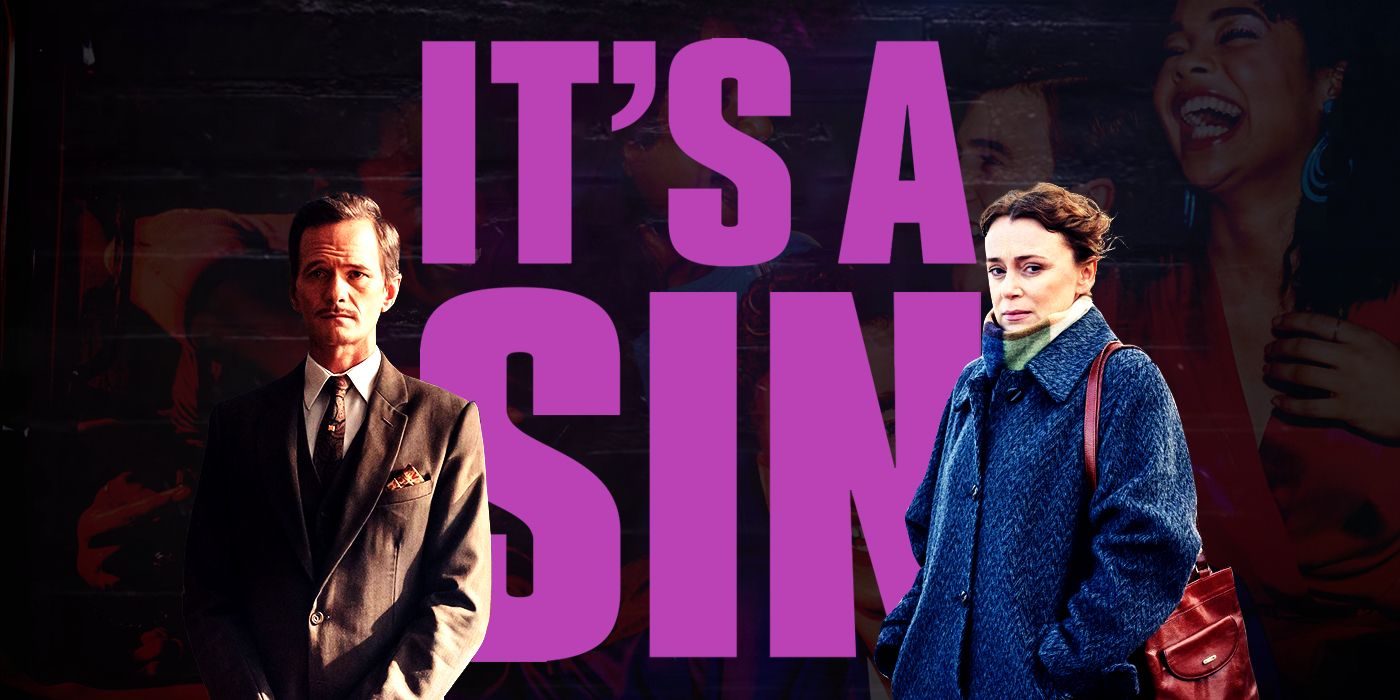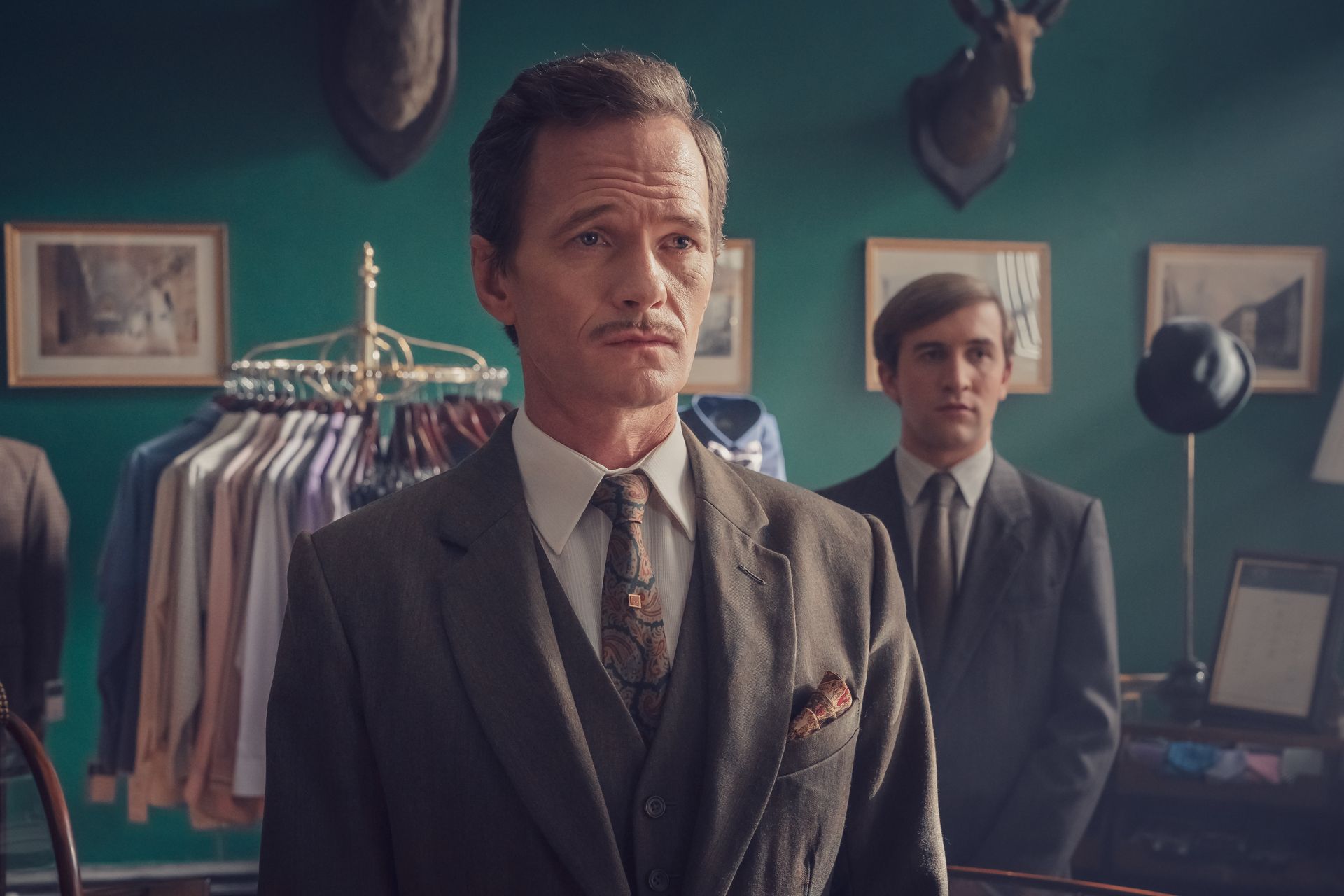[Editor's note: The following contains spoilers for It's a Sin.]
It’s a Sin is in no way an easy watch, but it's one of the best television shows of the year. Chronicling the height of the AIDS pandemic between 1981 and 1991 in London, the five-part HBO Max miniseries was a breakout showcase for an incredible cast of young performers, who star as new friends coming of age during this harrowing period. You may not have heard the names Olly Alexander, Omari Douglas, Callum Scott Howells, or Lydia West before, but by the time you reach the gripping series finale, they’re not ones you’ll soon forget.
In addition to these emerging talents, It’s a Sin features a supporting cast of veteran actors who play key figures in the development of the central group, including Neil Patrick Harris and Keeley Hawes. There’s a risk that more established names could distract from the leads, but It’s a Sin brilliantly uses their gravity to subvert seemingly familiar stock characters without ever taking the spotlight away from the youthful ensemble at its center.
Neil Patrick Harris’ character, Henry Coltrane, is introduced as the mentor of Colin (Howells), a timid young man who struggles to express himself and is deeply uneasy about announcing he’s gay. Coltrane first gives Colin a job as an apprentice tailor, but his kindness extends beyond employment. Coltrane is entirely comfortable with who he is, and he’s also unafraid to stand by Colin’s side when an older employee harasses him. He encourages Colin to love himself and feel at ease, and his words “you're perfectly safe with me” are Colin's first bit of comfort in his bleak experience on Savile Row.
Coltrane is the first openly gay man Colin can look to for guidance, and Harris is such a recognizable star and figure within the LGBTQIA+ community that his initial appearance comes as a welcoming familiar face. Harris is obviously well-versed in comedy, and he injects the perfect amount of humorous tone as Colin excitedly learns about the prospects of a more diverse England. It’s framed like Harris will be a recurring character, one that Colin’s friends can draw upon for wisdom as details about AIDS emerge.
As a result, Coltrane’s death at the very end of the first episode feels even more devastating and shocking as a result. Not only does it break with the expectations that a television show would want to prominently feature its most famous name frequently, but it shatters Colin’s reality as he’s now isolated without a fatherly figure. Harris is well-utilized because his appearance and sudden departure are seen squarely in how they impact Colin. Leveraging Harris to highlight the gravity of the AIDS crisis is a powerful creative choice, and it signifies an uncertain and terrifying reality Colin must face in the next four episodes.
If Harris is positioned as the embodiment of gentle affection, the strategic use of Keeley Hawes as the mother of Olly Alexander’s Ritchie Tozer is the polar opposite. Ritchie, an aspiring actor who ventures to London to learn about his craft, possesses a confidence that Colin would never dream of. He’s ecstatic to explore London nightclubs, and his home life living with his parents is only an occasional spot to return to on holidays and special occasions.
Ritchie’s calls home aren’t frequent, but Hawes’ maternal words of encouragement bring him a sense of ease that he certainly hasn’t gotten from his father (Shaun Dooley), who frequently mocks his son’s dream of becoming an actor. During the climax of the series, Ritchie’s relentless enthusiasm for exploring London’s nightlife comes to a halt for the first time when his HIV diagnosis is revealed. After watching friends’ lives taken by the illness, Ritchie looks to his parents for help when he’s reduced to a barely functioning state. His relationship with his father has never been good, but he might be able to come out to his mother and share the terrible burden he’s been under.
Hawes’ entire personna as an actor and character dramatically shifts in one of the most devastating moments in the entire series. Ritchie’s mother refuses to accept her son’s identity, denying the reality of the disease to the medical staff and berating her son for his identity when he’s confined to a hospital bed and barely able to speak. Hawes sharply denies Ritchies’ friends the chance to see him in his final moments, depriving him of the community that has developed beautifully throughout the series run.
It’s a Sin depicts many cruel ironies, but weaponizing a character who previously provided steady comfort by revealing her true ugliness comes as one of the most uncomfortable to watch, given what was foreshadowed. A recurring theme was Ritchie’s anticipation of coming out to his parents, and Hawes is able to use the authority she brings among a cast of unknowns to become a dominant obstacle for Ritchie to face.
As with Harris’ appearance, Hawes’ esteem is used to support the rest of the cast. While the focus is mostly on her mistreatment of Ritchie, it also changes the family dynamic. Ritchie’s father is left shell-shocked by his wife’s cruelty and surprisingly breaks down as he confesses his love for Ritchie. Dooley gets to shine as a flawed father who realizes how his behavior gave Ritchie a misjudged impression; he was skeptical of his son’s acting pursuits, but he’s not a bigot. Watching Dooley attempt to rectify Ritchie’s expectations and make the most of their last moments together is a terrific showcase for an underrated actor that inverts the parental dynamics thanks to Hawes’ work.
Showrunner Russell T. Davies understands the importance of making the series feel lived-in, using bigger names to show how those in positions of power can be both an asset and a hindrance to the young people growing up in this period of misinformation and hatred. While Harris and Hawes are the most impactful, Stephen Fry has a memorable two-episode run as a closeted conservative Parliament member and Tracy Ann Oberman shines in the critical role of Ritchie’s acting agent. It’s not disorienting to see these actors float in and out of the interconnected narrative, thanks to the nimble pacing that bounces between different storylines.
This Emmy cycle is simply an embarrassment of riches for the limited series category, with standout series such as The Queen’s Gambit, Small Axe, The Underground Railroad, Mare of Easttown, I May Destroy You, The Good Lord Bird, WandaVision, and The Undoing all in fierce competition for the five slots. It may be challenging for It’s a Sin to break in, which is unfortunate considering that an awards spotlight could draw more viewers to a series that deals with such important subject material. The memorable supporting cast may be what It’s a Sin needed in order to draw in more initial viewers. Thankfully, the choice is not only a good promotional hook, but a calculated creative choice.
It's a Sin is streaming now on HBO Max.



